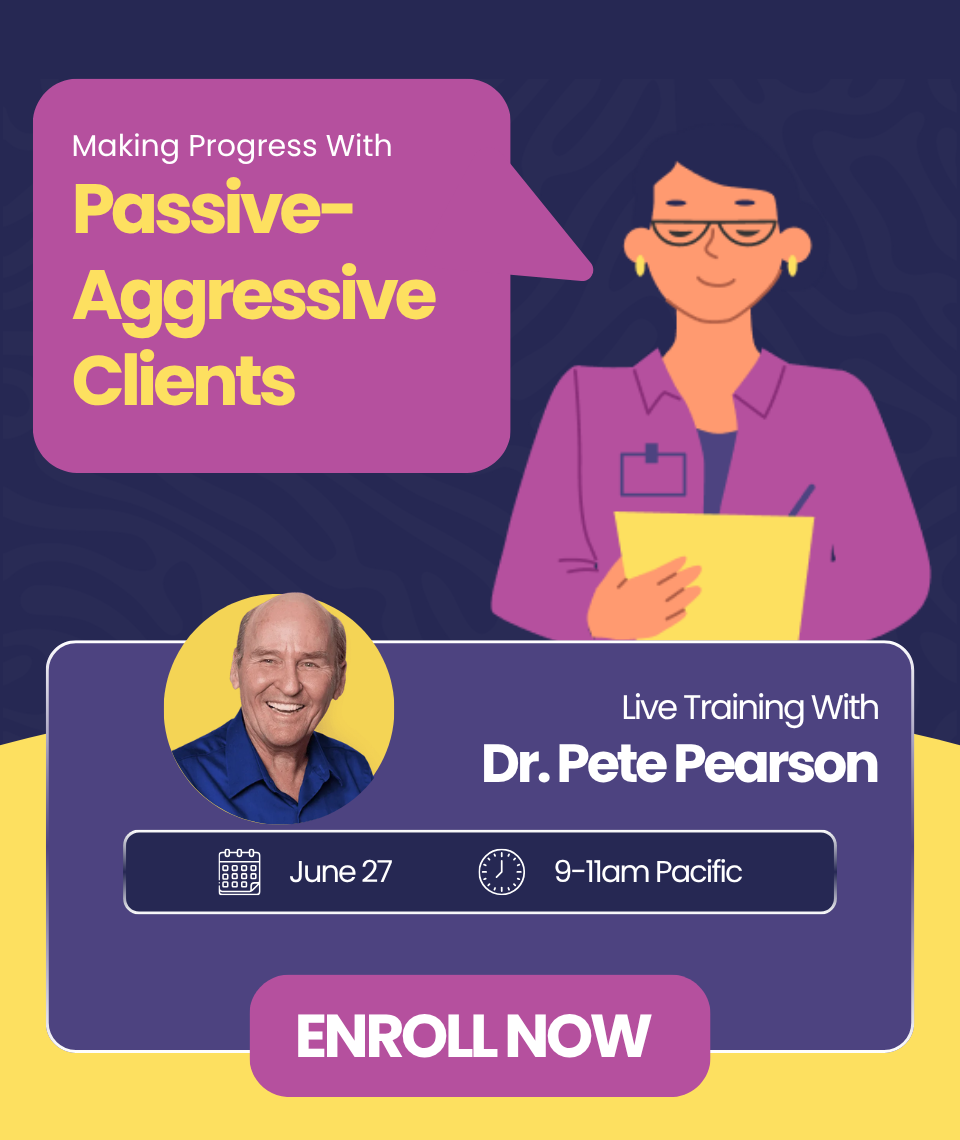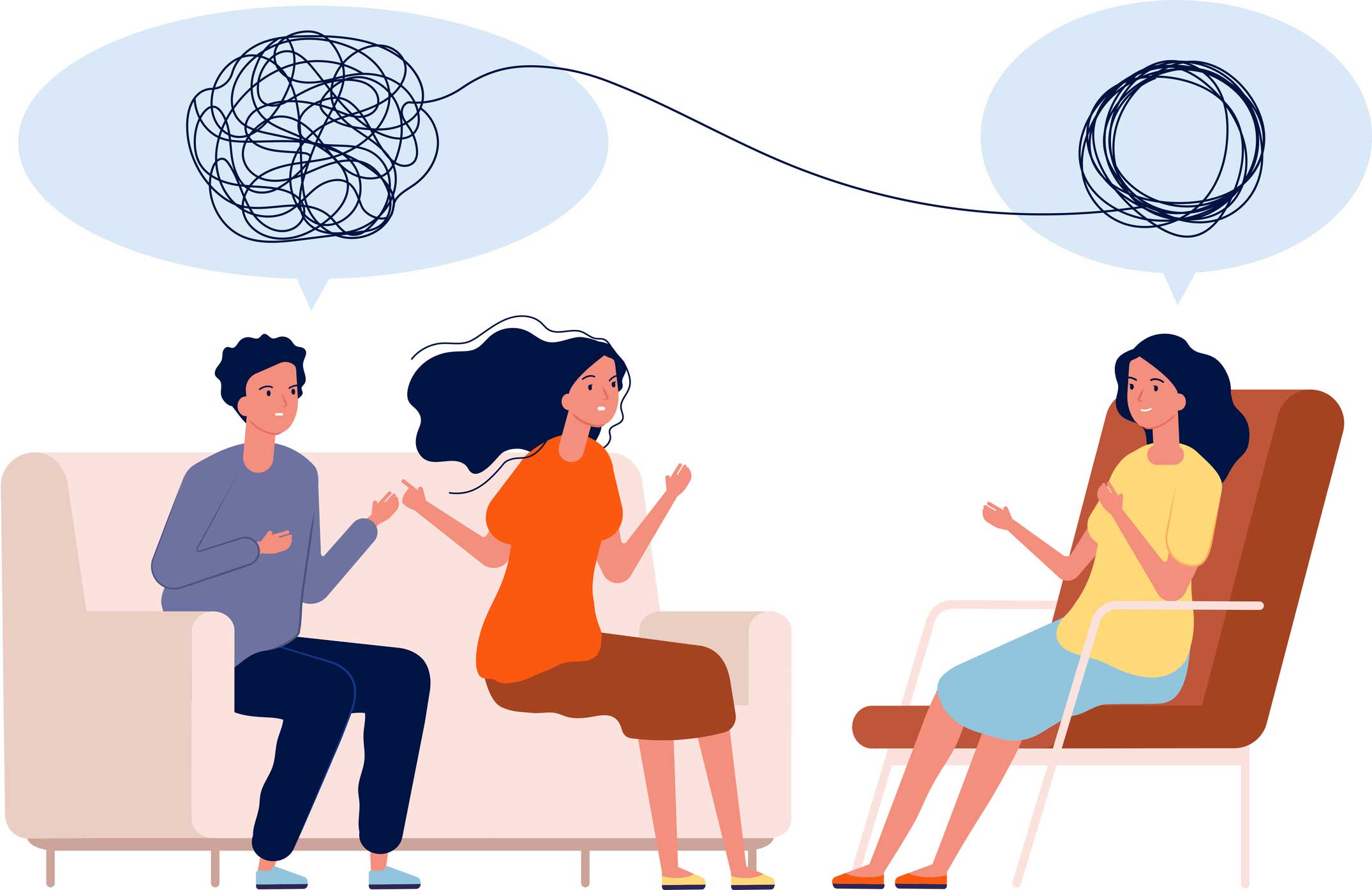Strategies for Increasing Differentiation and Rebuilding Love and Passion
In our last newsletter, we started looking at specific challenges presented in early sessions. One challenge is presented by the partner who says, “I love him but I am not in love with him.” These are not welcome words-for the partners or the therapist. The first implication is that the semi-motivated partner is staying in the relationship out of a sense of duty and obligation. The troubling implication is that you, the therapist, will have to work very hard to attempt to breathe new life into a dying marriage.
How do you approach this situation? Do you assume the relationship is over? Do you explore the dead feelings? Do you work hard to do the equivalent of starting a fire under water?
We approach this situation by thinking about the concept of differentiation in the couple. We look at the level of differentiation in each partner and whether the relationship has become arrested prior to the differentiation stage. This approach will give you some clues about the magnitude of the problem and whether it's hopeless or not.
Where do you start? What are the clues to look for? We look first at the original bonding stage of their relationship. What was the quality and length of the attachment? Was there an initial surge of passion and love? How strong was it and how long did it last? This will tell you whether each partner had the developmental capacity to merge boundaries and “fall in love.” It will tell you whether they could sustain it long enough to form a positive base of memories to fall back on during challenging times of conflict. It will also tell you about their ability to emotionally connect in a powerful way. This alone, however won't mean much if we don't examine the next set of clues.
The next step involves understanding differentiation. Differentiation is “the active ongoing process of defining self, activating self, expressing self, clarifying boundaries and managing the anxiety that comes from risking greater intimacy or potential loss.” So, when you are doing your detective work, be especially curious about how much they have been able to have difficult conversations where there are strong emotions on substantial issues.
Look for each partner's willingness and ability to expose and express what is individually important to them. Have they been able to effectively articulate their values, interests, concerns and goals? Have they been able to hold onto these in the face of their partner's disinterest or disagreement? Then Sherlock, look for the next really big clue. How effective have they been in eliciting their partner's values, interests, concerns and goals? Having these ongoing dialogues of expressing and eliciting are crucial for the couple to have moved into a successful differentiation process. Without these dialogues, the couple's relationship will often become arrested at the conflict avoidant symbiotic stage. This often results in “dead” feelings for one or both partners.
Here's how you can put all these clues together. If one partner has done a poor job of expressing their own wants, desires, thoughts and feelings, this partner will come to view the relationship as the cause for their misery or depression. They will have sacrificed themselves to maintain the relationship, but feel “no love.” The best hope for re-establishing love is for this partner to re-connect first with themselves and then be able to hold onto their desires in the face of conflict or disagreement with their partner.
In fact, differentiation is an evolving process. It develops through all stages after symbiosis and continues throughout life. Here's how it evolves:
1. Differentiation begins with internal self reflection. Partners start to identify their own thoughts, feelings, values, and desires.
2. Next they start developing an increasing ability to express congruently their own thoughts, feelings, values and desires. They begin to more actively expose, “who I am.”
3. Soon, they start to develop an awareness of their partner as being separate and different from themselves.
4. This necessitates developing an increasing ability to listen, elicit, hear and then respond effectively to these differences using clear boundaries.
5. Last, partners develop the ability to create an environment in the relationship that supports desired changes.
Your job is to shine the light and facilitate this process. When one or both partners can reconnect with themselves and then go through some differentiation dialogues, they will begin to know if their feelings are truly dead or only dormant. As one or both partners move away from self sacrifice and conflict avoidance, they will have the best opportunity for re-discovering passion. We believe that developing stronger self expression, overcoming fear of conflict and strengthening boundaries brings them the best hope of re-stimulating the energy between them.
This process of differentiation is at the heart of our work and is thoroughly described on “In Quest of the Mythical Mate Kit.” For more information on it, click here.

 We respect your privacy.
We respect your privacy.



